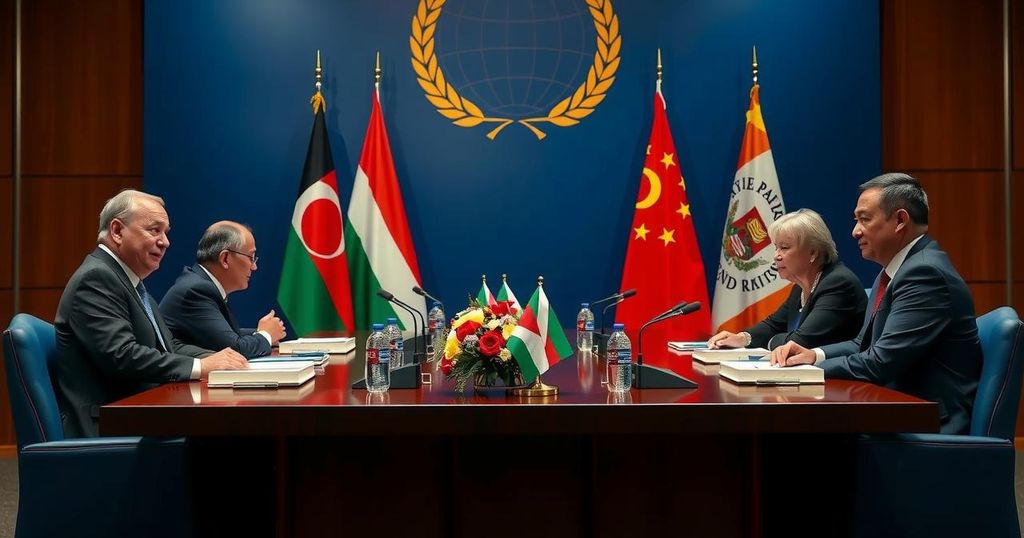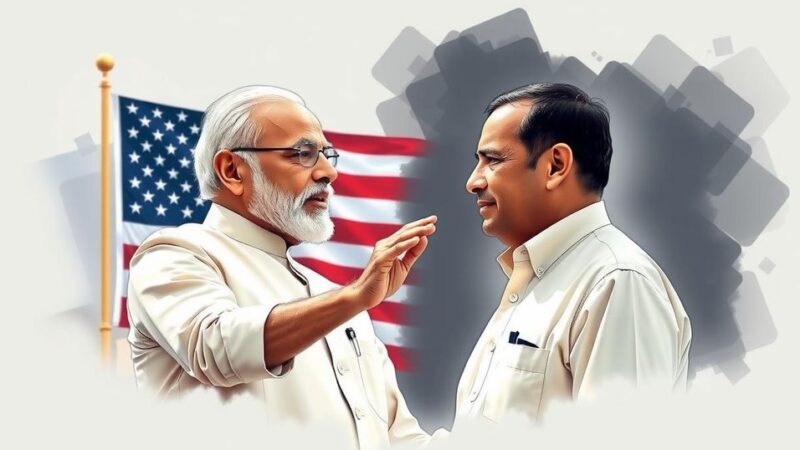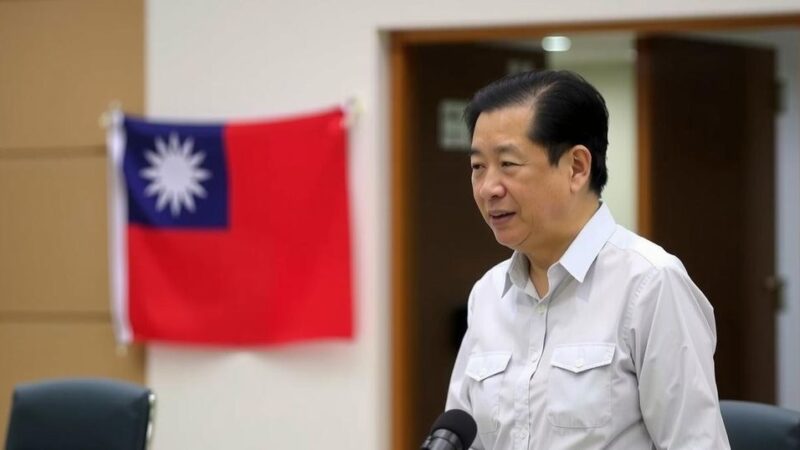Russian President Vladimir Putin hosted a significant BRICS Summit to promote a “new world order” aimed at reducing Western dominance and the U.S. dollar’s influence. The summit featured discussions on cooperation among members, including China and India, amidst ongoing geopolitical tensions. There is a concerted effort to establish alternatives to the SWIFT payment system and reform international financial institutions to better serve developing nations. Despite differing perspectives within the alliance, the summit underscores a burgeoning coalition of countries seeking to redefine global economic dynamics.
This week, Russian President Vladimir Putin hosted representatives from over two dozen countries at the BRICS Summit held in Kazan, Russia. The primary goal was to deliberate the formation of a “new world order” aimed at diminishing Western dominance, particularly that of the United States and the U.S. dollar. The summit represents Putin’s most significant international engagement since the onset of the Ukraine conflict in 2022. By pursuing this agenda, the BRICS alliance, which now includes members such as Iran and India among others, seeks to reduce dependency on the dollar to circumvent the economic sanctions enacted by the West. Putin remarked, “The dollar is being used as a weapon,” criticizing the Western approach and suggesting it was a miscalculation. In a noteworthy development, Chinese President Xi Jinping and Indian Prime Minister Narendra Modi utilized this summit to facilitate dialogue toward improving their historically tense relationship, coinciding with a recent agreement to conclude their military standoff in the disputed Himalayan region. Putin emphasized the significance of cooperation between Russia and China in stabilizing international relations, while India has continued to bolster the Russian economy by purchasing oil subject to sanctions worldwide. Originally conceived by financial analysts from Goldman Sachs, the BRICS grouping—comprising Brazil, Russia, India, China, and South Africa—has seen considerable expansion, now encompassing countries such as Iran, Egypt, Ethiopia, the UAE, and Saudi Arabia, along with expressions of interest from nations including Turkey, Malaysia, and Pakistan. Collectively, BRICS members represent half of the global population and account for 35% of the world’s economic output. Despite certain members, like Egypt and the UAE, maintaining substantial ties with the U.S., there is a shared interest in reforming existing international financial institutions like the World Bank and the International Monetary Fund to better cater to the developing world. In this context, there is a longing among some BRICS states for a less confrontational approach, in contrast to Russia’s predominantly anti-Western stance at the summit. A paramount issue remains the need for a viable alternative to the SWIFT payment system. While discussions of establishing a BRICS-centric financial framework continue, a coherent strategy for supplanting the dollar has yet to emerge. Iranian President Masoud Pezeshkian accentuated the need for BRICS to progress beyond mere discussion, lamenting unfulfilled objectives since the alliance’s inception over 15 years prior. He chastised the West for its reliance on sanctions, articulating a demand for more equitable global governance. The U.S. dollar currently represents 59% of global foreign currency reserves, a decline from 70% in 1999, highlighting the shifting dynamics in international finance. Former President Donald Trump has warned of the severe implications of losing the dollar’s status as the global currency, framing it as critical to national security and economic stability. In summary, the BRICS Summit heralds a significant step in fostering an alternative geopolitical sphere that challenges Western supremacy, although the intricate realities of international relations and financial systems remain complexities yet to be navigated.
The recent BRICS Summit hosted by Russia seeks to challenge the prevailing global order led by Western countries, primarily focusing on reducing reliance on the U.S. dollar. This comes amid ongoing geopolitical tensions, including Russia’s conflict with Ukraine and the historical rivalry between China and India. The BRICS group, initially established to incentivize cooperation among emerging economies, has experienced considerable expansion, reflecting a broader trend of countries seeking to assert their interests outside of Western frameworks. The summit is significant in addressing systemic imbalances in international monetary systems and affording a platform for countries traditionally marginalized in global affairs. The recent trends indicate an increasing readiness among these nations to unite against perceived Western dominance.
The BRICS Summit marks a pivotal moment in international relations, highlighting a collective ambition among emerging economies to forge a new global narrative that reduces Western influence. As countries strive to establish alternative financial systems and enhance cooperative relations, the growing significance of the BRICS alliance could redefine global economic contours. However, the successful realization of these objectives remains contingent upon overcoming inherent complexities within international financial systems and fostering cohesion among diverse member states.
Original Source: www.foxnews.com







